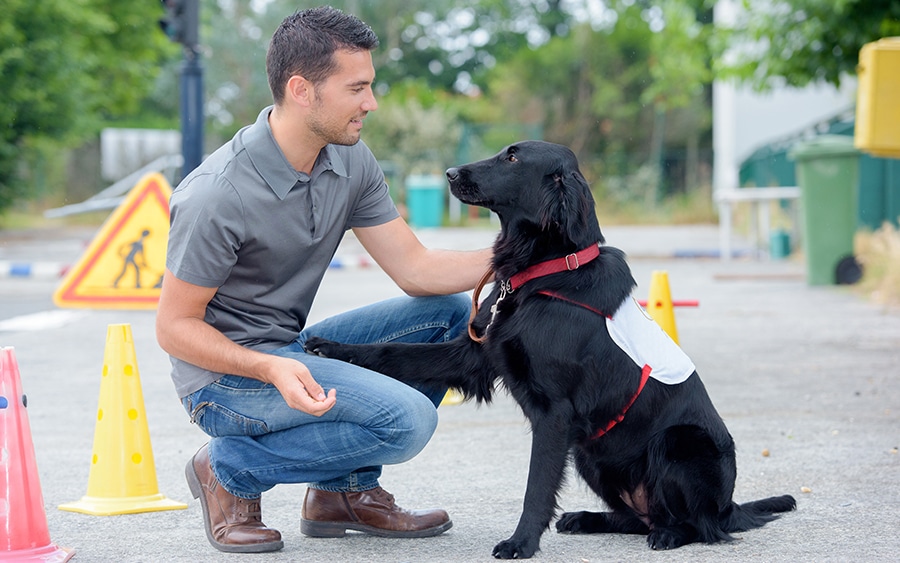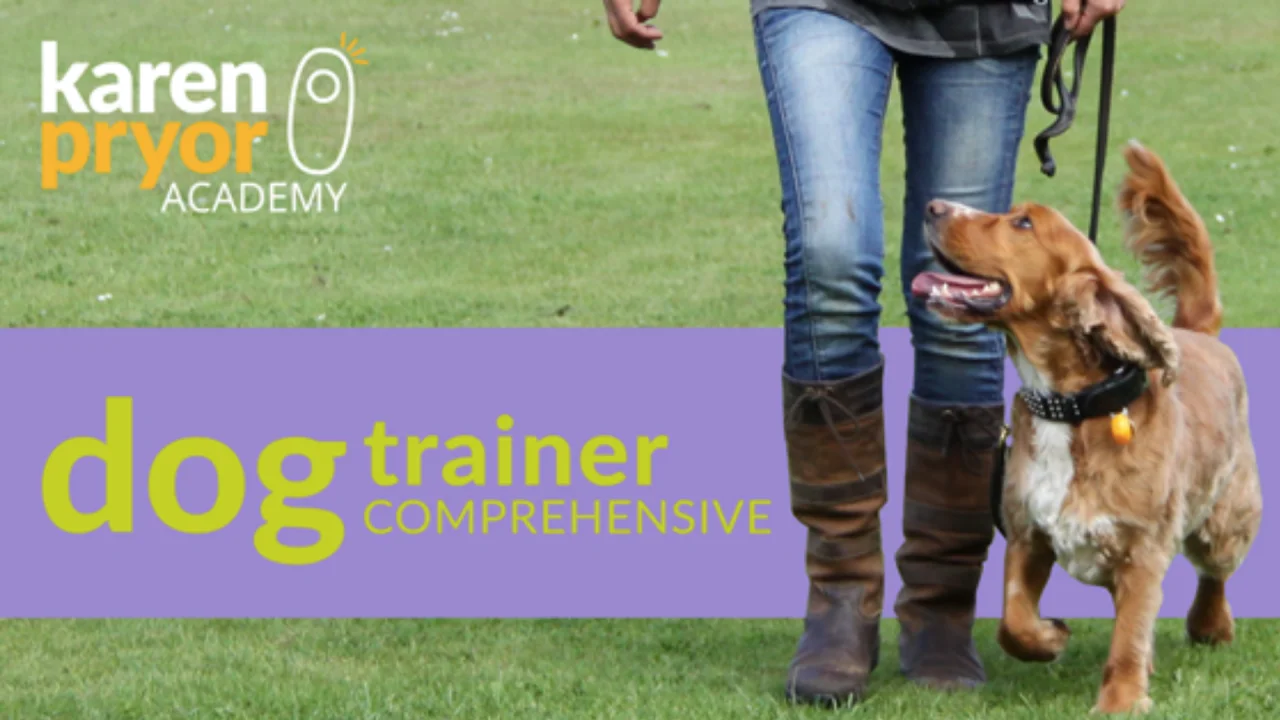The Ultimate Guide to Canine Training: Building a Delighted, Loyal Family Pet
Effective pet training is a complex procedure that hinges on a deep understanding of canine habits and the application of tried and tested techniques. By embracing favorable support and regular command use, pet dog proprietors can grow not only obedience yet additionally a solid, relying on partnership with their pet dogs.

Understanding Dog Habits
Exactly how does a dog's habits mirror its psychological and emotional state? A pet dog's actions can offer as a home window into its sensations, requirements, and overall mental health.
Body movement also plays a critical duty in understanding canine habits. An unwinded pose and open mouth signal comfort, whereas strained muscles and pinned ears may recommend anxiety or hostility. Observing these signals is essential for determining the origin triggers of a canine's behavior, whether it originates from disappointment, exhilaration, or anxiety.
Furthermore, a pet dog's interaction with its setting and various other animals can offer insight into its emotion. For example, a canine that engages happily with various other pet dogs is most likely feeling protected and social, while one that shows avoidance or aggressiveness might be experiencing stress and anxiety or insecurity. Comprehending these behavioral cues is crucial for cultivating a solid connection between the proprietor and the pet, ultimately adding to the canine's psychological health and wellness and wellness.
Important Training Methods
Reliable dog training methods are necessary for promoting desirable behaviors and reinforcing the bond between a canine and its owner. Making use of positive support is just one of the most effective methods, where rewards such as deals with, praise, or playtime are given to strengthen desired actions (dog training charlotte nc). This motivates the pet dog to repeat those behaviors, developing a positive discovering environment
Consistency is an additional essential aspect in pet dog training. Commands need to be clear and uniform, and all household members should apply the same guidelines to stay clear of perplexing the pet. Timing is just as crucial; benefits need to be offered promptly after the desired actions to develop a clear connection between the action and the benefit.
In addition, interesting and brief training sessions are effective, as pet dogs have varying interest periods. Go for sessions of 5 to 15 mins, depending upon the dog's age and power level. Integrating play right into training can also boost motivation and pleasure for both the owner and the dog.
Finally, persistence is vital. Canines learn at their own rate, and keeping a calm demeanor will help ease aggravation, making sure a favorable training experience. These essential methods prepared for effective pet dog training and an unified partnership.
Basic Commands to Instruct

Uniformity and favorable support are key when educating these commands. Dog training. Use treats, appreciation, and playtime to compensate your pet's successes. Short, frequent training sessions are extra effective than long, infrequent ones. By instilling these basic commands, proprietors equip their dogs with the skills necessary for a mannerly and harmonious partnership.
Resolving Typical Behavioral Issues
Comprehending and attending to typical behavior issues in canines is crucial for promoting an unified relationship between animals and their owners. Many pet dogs show actions such as extreme barking, chewing, or hostility, which can come from anxiousness, boredom, or absence of appropriate training. Recognizing the source of these actions is the very first action toward reliable intervention.
For instance, too much barking may suggest a requirement for focus or a response to ecological stimuli. In such situations, owners need to analyze the dog's environment and offer appropriate psychological stimulation, such as interactive toys or regular exercise. Chewing can commonly be handled by redirecting the habits to suitable chew products and making certain that the pet dog has enough physical activity to lower boredom.
Aggressive behavior needs careful handling and might demand expert training help. It's crucial to recognize that penalty can worsen stress and anxiety and aggressiveness, leading to a cycle of behavioral problems. Instead, concentrate on positive support strategies to reward desirable behaviors and strengthen a Continued sense of safety.
Structure a Positive Training Environment
Creating a favorable training setting is fundamental for enhancing preferable actions in pets and minimizing behavioral problems. This setting must be defined by uniformity, inspiration, and a clear understanding of the training goals. By developing a routine, pet dogs learn what is anticipated of them, which aids decrease anxiety and confusion.
Making use of positive reinforcement techniques, such as treats, appreciation, and play, promotes a complacency and inspiration in the pet dog. Discover More Rewarding etiquette quickly and consistently enhances the desired activities, making the training process extra reliable - dog training charlotte. In addition, trainers must continue to be person and calmness, as pet dogs are delicate to their handlers' emotions
The training space should be totally free from distractions to make certain the canine can concentrate on the jobs available. Take into consideration using a peaceful space or a secure outdoor location. Moreover, including play and socializing into training sessions promotes an all-round method, boosting the pet dog's learning experience.
Ultimately, a positive training environment supports a strong bond between the canine and handler, leading to a loyal, happy pet. By prioritizing this atmosphere, family pet proprietors can properly deal with behavior difficulties and cultivate a successful training journey.
Final Thought
Efficient dog training counts on a thorough understanding of canine behavior and the application of positive reinforcement techniques. By understanding vital commands and addressing behavior problems with perseverance and clear interaction, proprietors can promote a strong bond with their pets. Producing a supportive training setting boosts security and count on, eventually bring about the advancement of a well-behaved and cheerful buddy. Taking on these principles guarantees a fulfilling training experience for both canines and their owners. have a peek at this site
Reliable pet training is a multifaceted process that pivots on a deep understanding of canine actions and the application of tested techniques. A pet dog that involves playfully with various other dogs is most likely sensation protected and social, while one that shows evasion or aggression might be experiencing anxiety or insecurity.Effective pet training methods are crucial for promoting preferable behaviors and reinforcing the bond between a canine and its proprietor.Developing a favorable training environment is essential for enhancing preferable habits in pets and alleviating behavior problems.Reliable dog training counts on an extensive understanding of canine behavior and the application of favorable reinforcement techniques.